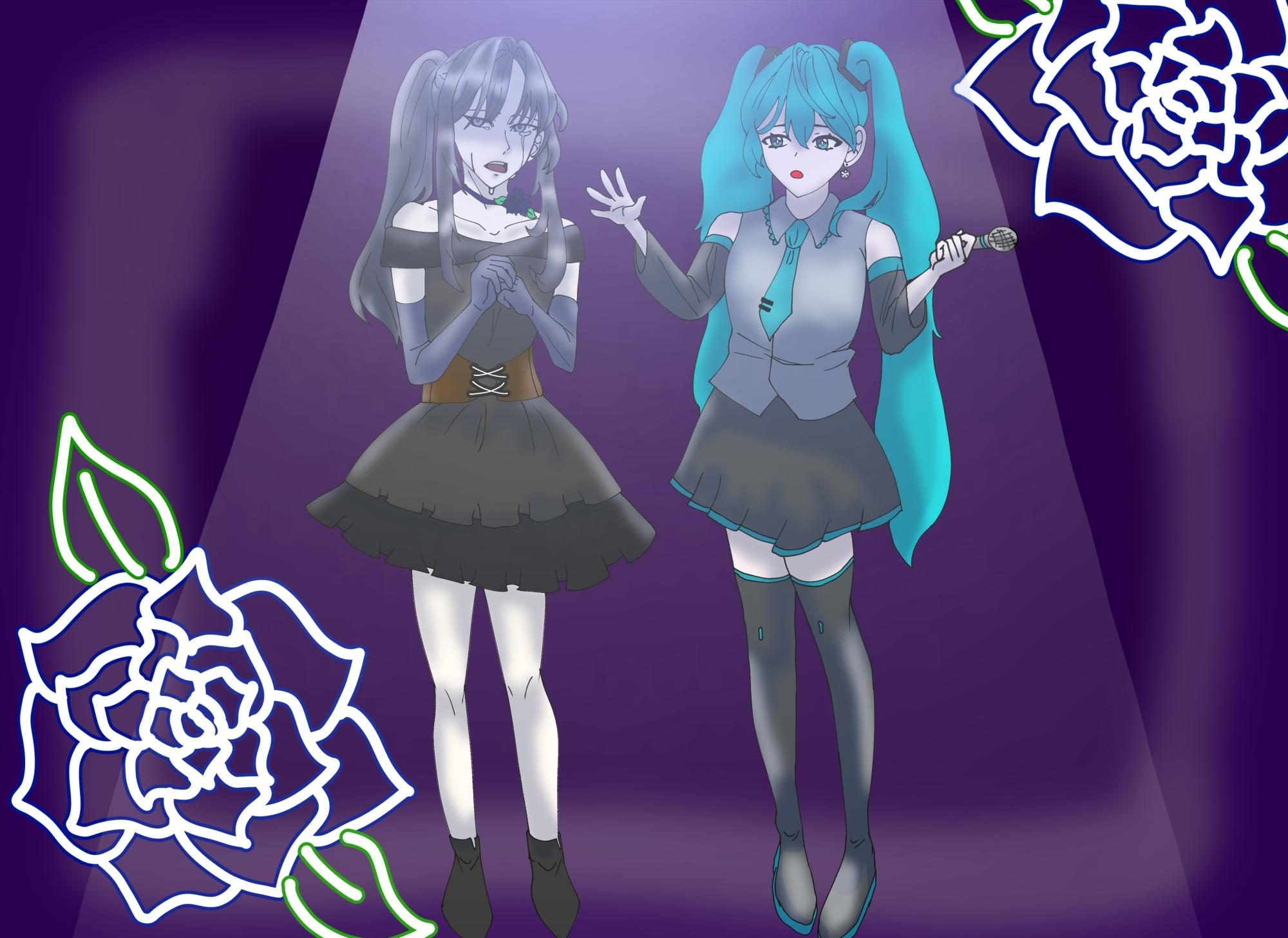
Amidst fans’ cheers, the dim screen flickers to life, revealing Ado in a cage with a spooky backdrop filled with skeletons and hypnotizing patterns. But before I can take in the frightening atmosphere to its fullest, her captivating dance snatches my attention, and I remain hooked until the end of the show.
J-pop fans know Ado for her screechy voice and powerful vocals. But her concert “心臓 (Shinzou; meaning “heart” in Japanese)” held in Tokyo from April 27 to 28 shed light on two sides of her – her confidence as a singer and imperfection as a human.
Currently 22 years old, Ado began her career as a singer in October 2020. Two years later, ‘Usseewa (うっせえわ)’ gained traction from J-pop fans worldwide, and she won Billboard’s “artist of the year” award.
In response to fervent love from international fans, Lotte Cinemas across Korea aired the recorded concert. As an avid fan of Ado I joined other fans at Dongseong-ro to immerse myself in the concert experience.
Usseewa, the song that brought Ado to Billboard, kick-started the concert. Ado’s high-pitched, powerful vocals hyped up the crowd and accentuated the track’s emotional arc. The uniqueness of her vocals reminded me of rock – impactful but soulful at the same time.
After the first song came more niche tracks, such as “Value” and “Chocolat Cadabra.” Some were from the popular anime “One Piece” as well: “Tot musica,” “New Genesis,” and “Backlight.” The songs I didn’t recognize were definitely earworms – I added them to my playlist as soon as the concert ended.
During a short break, the camera tilted up towards the dark sky. It puzzled me at first, but I quickly found colorful drones decorating the sky with Ado’s symbols: a heart with plant roots, the Milky Way, and a blue rose. The drone show conveyed Ado’s love for her fans and also herself in a unique way.
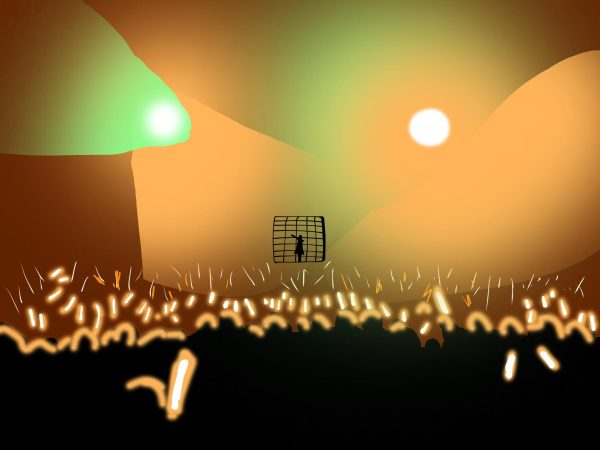
Afterward, Ado reappeared on the stage in a different dress, no longer trapped in the cage. She freely walked around the stage while performing my favorite song, “Show (唱).” The lyrics boost my self-esteem anytime I face an obstacle. The theater’s majestic audio amplified the message. It touched me in different ways than when I listened to the track at home.
After a few songs, the theater went dark once more. Ado revealed herself in front of a plain background and narrated her teenage social awkwardness and low self-esteem. She had once relied on Vocaloids – a synthesizer software – to create music. During this time, she leaned on Utaite (歌い手; Japanese amateur singers who mainly upload cover songs) for emotional comfort.
Ado referred to Vocaloids and Utaite as her “second hearts.” As a huge Vocaloid and Utaite fan since middle school, I knew how such music gave fans the bravery to help them push through hardships.
Following the narrative interlude, she performed “Sakura Biyori and Time Machine (桜日和とタイムマシン)” with the holographic image of Hatsune Miku, the most well-known Vocaloid, onstage. It seemed like Ado was achieving her deep-rooted dream: to sing with a Vocaloid in real life. While I barely understood the lyrics, the emotion carried through, and I bursted into tears.
When I looked up the lyrics after the concert, they almost moved me to tears once again—the part that goes “いつまで立ち止まり言い訳してるんだろう (How long will I keep standing still, making excuses?)” reminded me of Ado’s past and brought every detail of the concert back to life.
Before the concert, I regretted my decision to attend the show. Who would expect a recording to capture the vibe of a real concert? But thanks to the blasting audio and flashy visual effects, the entire experience seemed to take place at an actual concert venue. If I attended the concert, I would have given it a 20 out of 10, but nonetheless, it still sits at the top of my list.













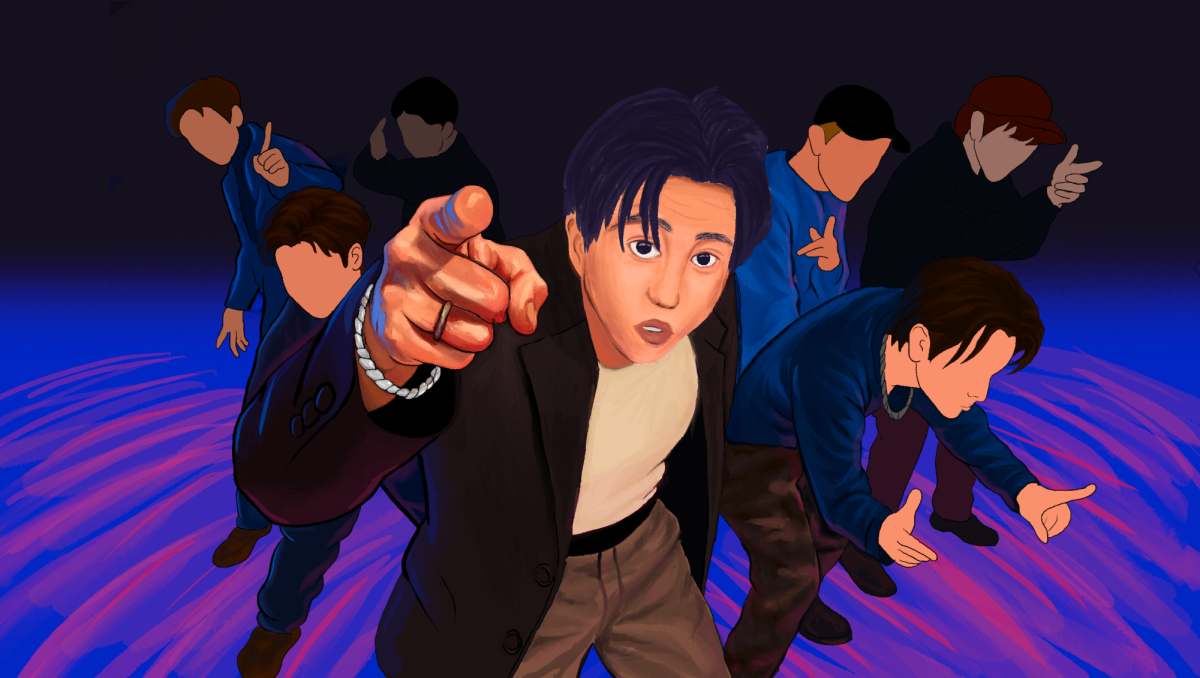



















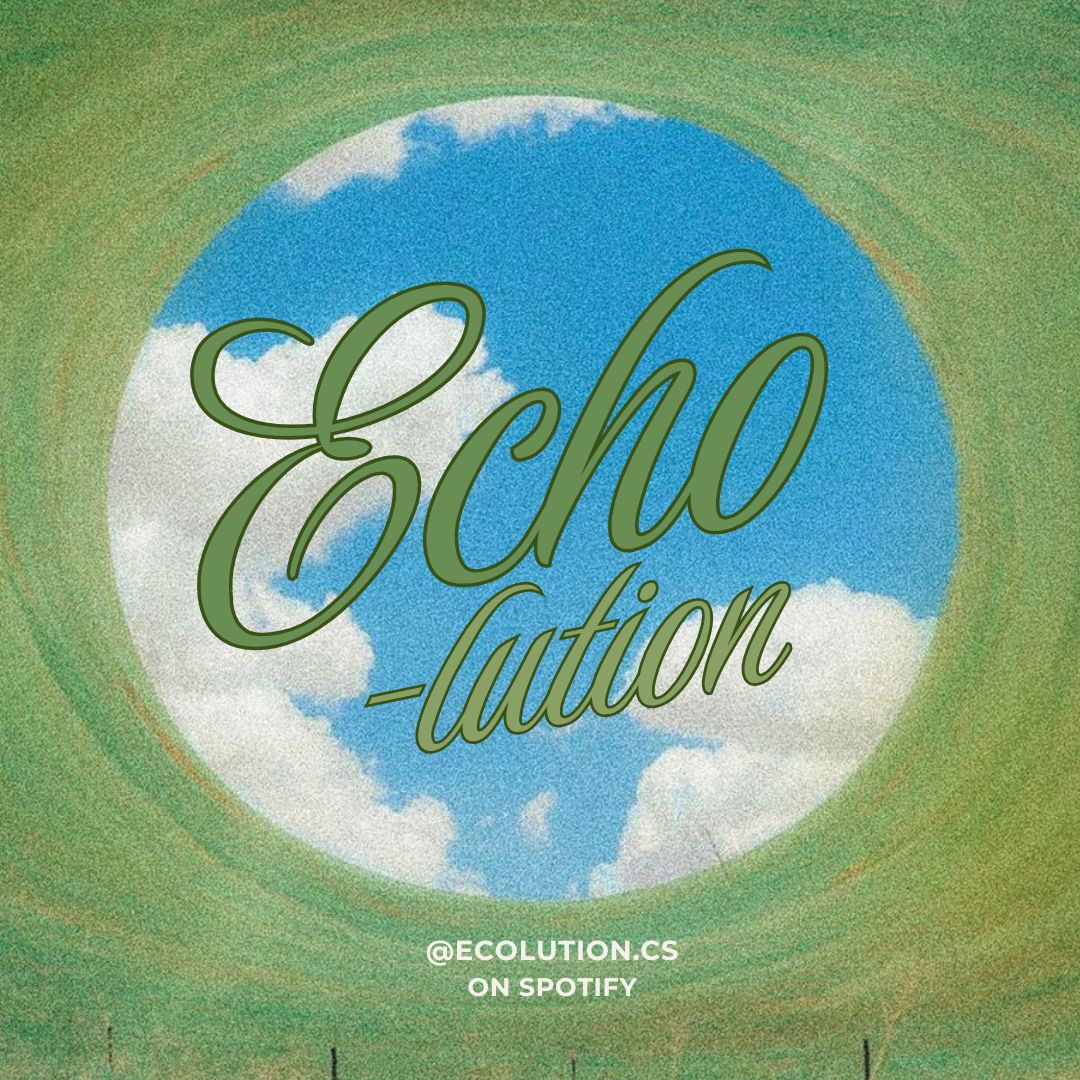
















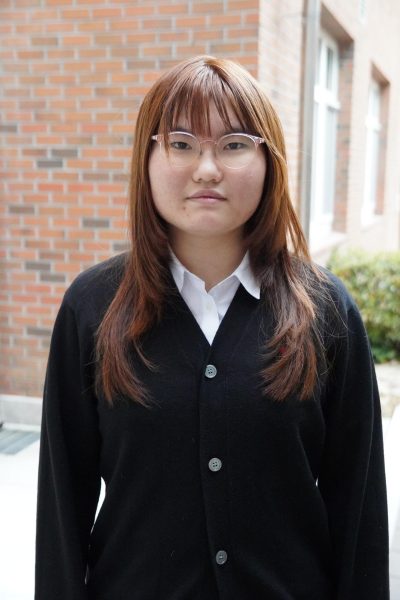
Maei Jn • Aug 21, 2025 at 7:30 pm
Ado! いつも私の1番! I love your songs.. This article is amazing! Thank you!
Stella Kwon • Aug 21, 2025 at 7:24 pm
I like Ado’s “show” tooooo :DDDD
nice article